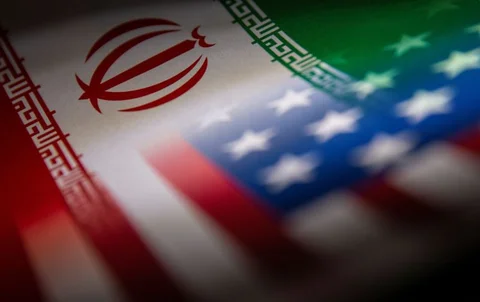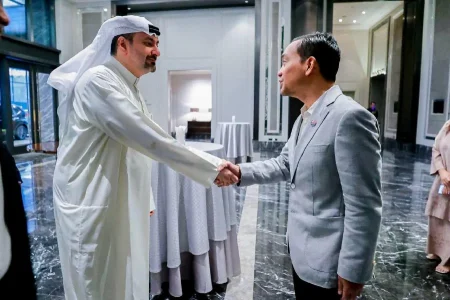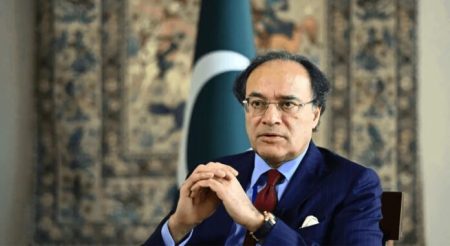Iran and the United States will restart nuclear talks on Sunday in Muscat, aiming to ease tensions and find common ground on Iran’s nuclear program. This comes just days before former U.S. President Donald Trump begins a tour of key Middle Eastern allies.
Despite both countries claiming to prefer diplomacy, the talks are under pressure. Each side holds firm to opposing red lines, making progress difficult. U.S. officials demand a complete halt to Iran’s uranium enrichment, while Iran insists on keeping its nuclear rights under international law.
High-Stakes Meeting in Oman
The meeting in Muscat marks the fourth round of discussions. Iranian Foreign Minister Abbas Araqchi and Trump’s Middle East envoy, Steve Witkoff, will lead the talks. Oman will act as the mediator, continuing its neutral role in past negotiations.
The original date for this meeting was May 3 in Rome. It was moved due to what Oman called “logistical issues.” Now, with time running short and regional tensions rising, the talks take on new urgency.
US Wants Full Dismantling of Nuclear Sites
Steve Witkoff laid out the U.S. stance in a recent interview with Breitbart News. He said, “No enrichment. That means dismantlement, no weaponization.” This includes shutting down major Iranian nuclear facilities in Natanz, Fordow, and Isfahan.
Witkoff added that if Sunday’s talks do not show progress, they might not continue. He warned that the U.S. is ready to explore “other routes,” hinting at possible military options.
Trump’s upcoming visit to Saudi Arabia, Qatar, and the UAE from May 13 to 16 adds pressure on the talks. These countries are closely watching developments and share U.S. concerns about Iran’s nuclear ambitions.
Iran Rejects Any Limits on Its Rights
In response to Witkoff’s comments, Araqchi said Iran would not give up its nuclear rights. “If the aim of these talks is to limit Iran’s nuclear rights, Iran will not back down,” he stated on Saturday.
Iran has always said its nuclear program is peaceful. Still, it has accelerated uranium enrichment in recent years. The U.N. nuclear watchdog confirmed that Iran is enriching uranium up to 60% purity—close to the 90% needed for weapons.
Iranian officials say they are open to limiting parts of their program in exchange for lifting U.S. sanctions. However, stopping enrichment or handing over enriched uranium stockpiles are off the table.
Behind Closed Doors: Different Messages
A senior Iranian official, speaking anonymously, said the U.S. message in public is often harsher than in private. “What the U.S. says publicly differs from what is said in negotiations,” the official noted.
He added that more clarity will emerge once the next round begins. Still, Iran believes that demands like “zero enrichment” are not realistic and may block any deal.
Ballistic Missiles and Trump’s Track Record
Another issue is Iran’s missile program. Tehran has ruled out any discussion on this topic. Officials say it is a matter of national defense and not linked to the nuclear file.
Trust is also a major issue. Iran’s leaders want solid guarantees that any deal made now will not be undone in the future. Trump’s decision to exit the 2015 nuclear deal during his first term left deep scars.
The 2015 pact, known as the JCPOA, included the U.S., UK, France, Germany, Russia, and China. It lifted many sanctions on Iran in return for nuclear limits. Trump pulled out of it in 2018 and reimposed strict sanctions, reviving a “maximum pressure” strategy.
Since then, Iran has taken several steps outside the agreement. These include increasing enrichment levels and limiting inspections. The U.N. says these steps have taken Iran closer to having weapons-grade uranium.
Regional Risks and Global Stakes
The talks in Muscat are not just about Iran and the U.S. Countries across the Middle East are watching closely. Saudi Arabia and Israel have both warned about Iran’s growing nuclear capability.
A failure in negotiations could lead to more sanctions or even military strikes. Success, however, could ease years of tensions and help stabilize a troubled region.
International observers hope both sides can show flexibility. Diplomacy remains the only long-term path to peace.















